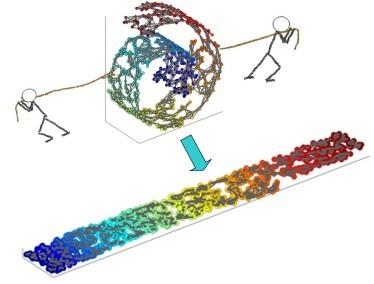Evaluating the performance of low-light image enhancement (LLE) is highly subjective, thus making integrating human preferences into image enhancement a necessity. Existing methods fail to consider this and present a series of potentially valid heuristic criteria for training enhancement models. In this paper, we propose a new paradigm, i.e., aesthetics-guided low-light image enhancement (ALL-E), which introduces aesthetic preferences to LLE and motivates training in a reinforcement learning framework with an aesthetic reward. Each pixel, functioning as an agent, refines itself by recursive actions, i.e., its corresponding adjustment curve is estimated sequentially. Extensive experiments show that integrating aesthetic assessment improves both subjective experience and objective evaluation. Our results on various benchmarks demonstrate the superiority of ALL-E over state-of-the-art methods.
翻译:暂无翻译



